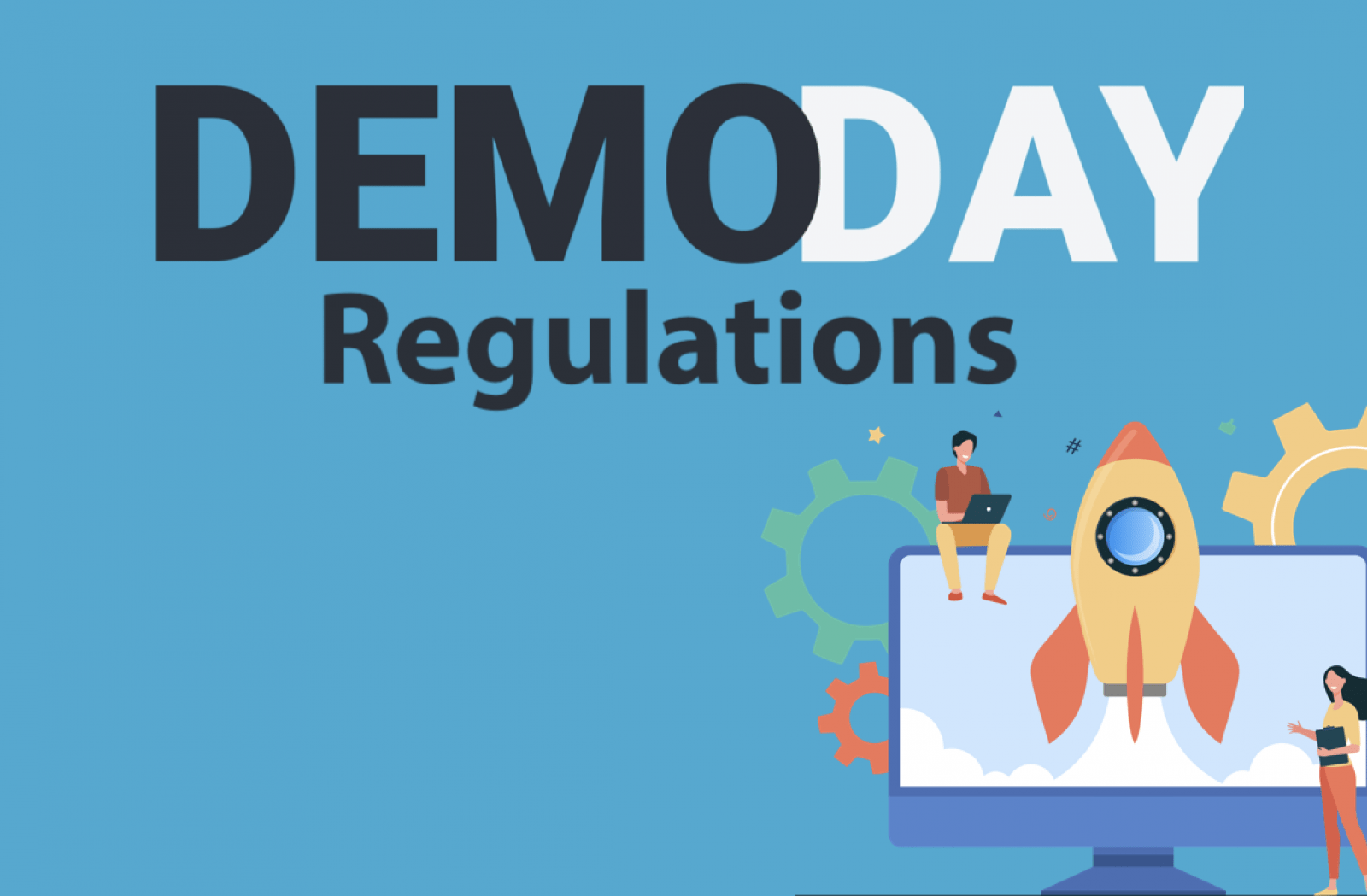Securities Act Rules

The changes to the regulation of Demo Days and certain other testing-the-waters communications are intended to expand the universe of possible issuer communications with prospective investors while maintaining key Securities Act protections. New Rule 148 provides the following Demo Day specific rules:
New Rule 241 allows issuers to test the waters with generic solicitation of interest materials before determining which exemption the issuer will conduct its offering under.
What this means to you
The extensive changes to Reg CF appear to demonstrate the SEC’s desire to make crowdfunding both: (a) a more useful avenue for raising capital in emerging companies, and (b) a market-making device to open up the private capital markets to more investors. By increasing Reg CF’s offering limit to $5MM and expanding investment caps placed on investors, emerging business are more likely to consider Reg CF offerings.
Many small, private companies and emerging businesses pleaded with the SEC after its preliminary release of the rules, to raise the offering limit under Reg CF, especially in the economic throes of the COVID-19 pandemic. The SEC acted on these comments, and assisted these potential issuers by raising the limit to a more meaningful figure, expanding the amount of investment an investor can make, and removing certain financial statement requirements for smaller offerings. These changes should help breathe new life into this rather underutilized offering exemption.
One point of particular interest for Reg CF issuers and investors alike will be the SECs new exemption under the Investment Company Act, which permits the use of an SPV to facilitate investment in Reg CF issuers. The framework here is that an SPV is one large security holder of the crowdfunding issuer, which then issues securities in itself through an offering parallel to the one for the underlying crowdfunding issuer.
This is intended to allow investors in the SPV to achieve the same economic exposure, voting power, and ability to assert state and federal securities law protections, as well as to receive the same disclosures under Reg CF, as if they had invested directly in the underlying issuer.
From the underlying crowdfunding issuer’s perspective, however, it maintains a simple capitalization table (with the SPV as one investor rather than a large and diffuse array of investors) and reduces the administrative complexity associated with having a large and diffuse investor base. This may encourage crowdfunding issuers to offer voting rights or other rights not commonly associated with Reg CF securities to their investors given the more straightforward administration.
For issuers planning to showcase their businesses at Demo Day events or struggling to understand what sort of offering prospective investors are most receptive to, these new rules will provide certainty and valuable feedback on the best path forward. By giving issuers additional flexibility in Demo-Day communications and providing more clarity around what is permitted, Rule 148 dramatically improves the previously uncertain landscape that hindered participation in these events and communication with investors.
Although companies may rely on previous SEC guidance if they choose, Rule 148’s certainty is surely something that counsel for emerging companies will find relieving. Of note, the SEC placed guidelines on who may attend online or virtual Demo Day events, but did not place the same restraints on in-person only Demo Day events, believing that the in-person nature will prevent the broad solicitation of investors who cannot fend for themselves to such events.
Read More...
About Capital Engine®
Capital Engine® facilitates the creation of efficient, trusted and scalable online private capital and alternative investment marketplaces for traditional and digital assets, through our tiered business technology ecosystem: private label platforms, strategic partnerships and inhouse marketplace for private placements.
Our clients include broker dealers, family offices, wealth managers, incubators, accelerators, social impact and real estate funds, in providing customized SaaS solutions to power private capital and alternative investment platforms, with a strong focus on investor management services.
Capital Engine® provides a comprehensive, integrated suite of digital investment tools, back office technology and distribution platform to connect private capital with HNW individuals and family office capital.
Our software helps leverage the opportunity to better originate and showcase a diverse selection of private investment deals and offer these to investors i.e. a deal’s potential viability can be better assessed, market appetite determined and transaction promptly closed.
Interested in raising capital https://capitalengine.io/raise-capital
Interested in a demo https://capitalengine.io/request-a-demo
- Demo Day sponsors. An issuer will not be deemed to have engaged in general solicitation with respect to certain communications (outlined below) if made in connection with Demo Day events sponsored by:
- college, university or other institution of higher education;
- state or local government or instrumentality of a state or local government;
- nonprofit organization; or
- angel investor group, incubator or accelerator.
- Demo Day communications. The issuer may convey only the following regarding any offering:
?- That the issuer is in the process of offering or planning to offer securities;
- The type and amount of securities being offered;
- The intended use of the proceeds of the offering; and
- The unsubscribed amount of the offering.
- Demo Day audience. Limitations on the types of investors that may attend online or virtual Demo Day events were included to ensure communications are not broadly made to nonaccredited and/or unsophisticated investors. Online or virtual participation is limited to:
- Individuals who are members of, or otherwise associated with, the sponsor organization;
- Individuals that the sponsor reasonably believes are accredited investors; and
- Individuals who have been invited to the event by the sponsor based on industry or investment-related experience reasonably selected by the sponsor in good faith and disclosed in the public communications about the event.
- Demo Day sponsor limitations. Sponsors of Demo Day events are not permitted to:
- Make investment recommendations or provide investment advice to attendees;
- Engage in any investment negotiations between the issuer and attendees;
- Charge attendees of the event any fees, other than reasonable administrative fees;
- Receive any compensation for making introductions between attendees and issuers, or for investment negotiations between the parties; or
- Receive any compensation with respect to the event that would require such sponsor to register as a broker-dealer under the Exchange Act, or as an investment adviser under the Investment Advisers Act of 1940.
- Critically, advertising for the event cannot reference any specific offering of securities by any issuer.
New Rule 241 allows issuers to test the waters with generic solicitation of interest materials before determining which exemption the issuer will conduct its offering under.
- Issuers may communicate (orally or in writing) with potential investors to determine whether there is any interest in an exempt offering of securities. No solicitation or acceptance of consideration or commitment from any person is permitted until the issuer determines which exemption it will use and commences the offering in compliance with that exemption.
- If an issuer moves forward with an exempt offering following the generic solicitation of interest, it will be required to comply with that applicable exemption for the subsequent offering, and investors will receive the protections provided by such exemption.
- If the generic solicitation is done in a manner that would constitute a general solicitation, and the issuer decides to conduct an unregistered offering under an exemption that does not permit general solicitation (e.g., Rule 506(b)), the issuer must analyze whether that solicitation and the subsequent private offering will be integrated, thereby making unavailable an exemption that does not permit general solicitation.
- Importantly, testing-the-waters materials are required to provide specified disclosures notifying prospective investors about the limitations of the generic solicitation. The issuer’s communications must state that:
- The issuer is considering an offering of securities exempt from registration under the Securities Act, but has not determined the specific exemption from registration the issuer intends to rely on for the subsequent offer and sale of the securities;
- No money or other consideration is being solicited, and if sent in response, will not be accepted;
- No offer to buy the securities can be accepted and no part of the purchase price can be received until the issuer determines the exemption under which the offering is intended to be conducted and, where applicable, the filing, disclosure or qualification requirements of such exemption are met; and
- A person’s indication of interest involves no obligation or commitment of any kind.
- Generic solicitation materials must be made publicly available as an exhibit to offering materials filed with the SEC if an offering is commenced within 30 days of a generic solicitation under Regulation A or Reg CF. If the issuer sells securities under Rule 506(b) within 30 days of a generic solicitation of interest, the issuer must provide such purchasers with any written generic solicitation of interest materials used.
What this means to you
The extensive changes to Reg CF appear to demonstrate the SEC’s desire to make crowdfunding both: (a) a more useful avenue for raising capital in emerging companies, and (b) a market-making device to open up the private capital markets to more investors. By increasing Reg CF’s offering limit to $5MM and expanding investment caps placed on investors, emerging business are more likely to consider Reg CF offerings.
Many small, private companies and emerging businesses pleaded with the SEC after its preliminary release of the rules, to raise the offering limit under Reg CF, especially in the economic throes of the COVID-19 pandemic. The SEC acted on these comments, and assisted these potential issuers by raising the limit to a more meaningful figure, expanding the amount of investment an investor can make, and removing certain financial statement requirements for smaller offerings. These changes should help breathe new life into this rather underutilized offering exemption.
One point of particular interest for Reg CF issuers and investors alike will be the SECs new exemption under the Investment Company Act, which permits the use of an SPV to facilitate investment in Reg CF issuers. The framework here is that an SPV is one large security holder of the crowdfunding issuer, which then issues securities in itself through an offering parallel to the one for the underlying crowdfunding issuer.
This is intended to allow investors in the SPV to achieve the same economic exposure, voting power, and ability to assert state and federal securities law protections, as well as to receive the same disclosures under Reg CF, as if they had invested directly in the underlying issuer.
From the underlying crowdfunding issuer’s perspective, however, it maintains a simple capitalization table (with the SPV as one investor rather than a large and diffuse array of investors) and reduces the administrative complexity associated with having a large and diffuse investor base. This may encourage crowdfunding issuers to offer voting rights or other rights not commonly associated with Reg CF securities to their investors given the more straightforward administration.
For issuers planning to showcase their businesses at Demo Day events or struggling to understand what sort of offering prospective investors are most receptive to, these new rules will provide certainty and valuable feedback on the best path forward. By giving issuers additional flexibility in Demo-Day communications and providing more clarity around what is permitted, Rule 148 dramatically improves the previously uncertain landscape that hindered participation in these events and communication with investors.
Although companies may rely on previous SEC guidance if they choose, Rule 148’s certainty is surely something that counsel for emerging companies will find relieving. Of note, the SEC placed guidelines on who may attend online or virtual Demo Day events, but did not place the same restraints on in-person only Demo Day events, believing that the in-person nature will prevent the broad solicitation of investors who cannot fend for themselves to such events.
Read More...
About Capital Engine®
Capital Engine® facilitates the creation of efficient, trusted and scalable online private capital and alternative investment marketplaces for traditional and digital assets, through our tiered business technology ecosystem: private label platforms, strategic partnerships and inhouse marketplace for private placements.
Our clients include broker dealers, family offices, wealth managers, incubators, accelerators, social impact and real estate funds, in providing customized SaaS solutions to power private capital and alternative investment platforms, with a strong focus on investor management services.
Capital Engine® provides a comprehensive, integrated suite of digital investment tools, back office technology and distribution platform to connect private capital with HNW individuals and family office capital.
Our software helps leverage the opportunity to better originate and showcase a diverse selection of private investment deals and offer these to investors i.e. a deal’s potential viability can be better assessed, market appetite determined and transaction promptly closed.
Interested in raising capital https://capitalengine.io/raise-capital
Interested in a demo https://capitalengine.io/request-a-demo
Latest Articles





